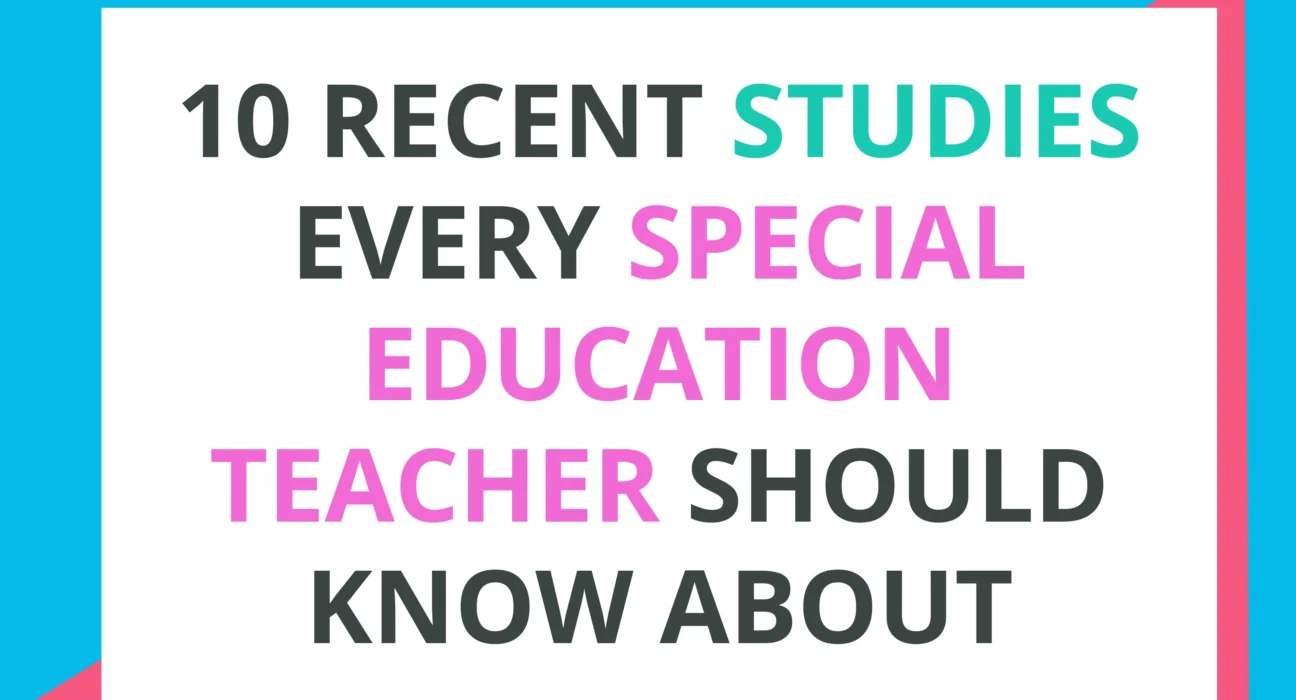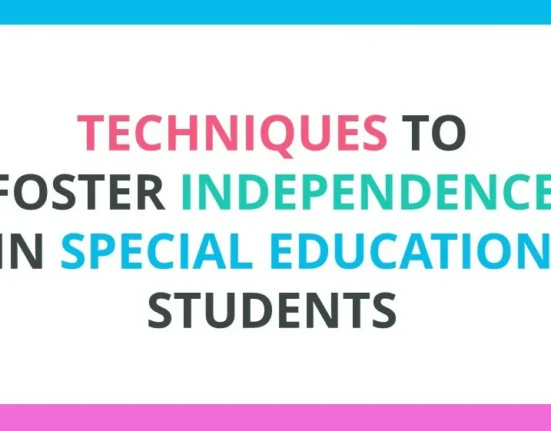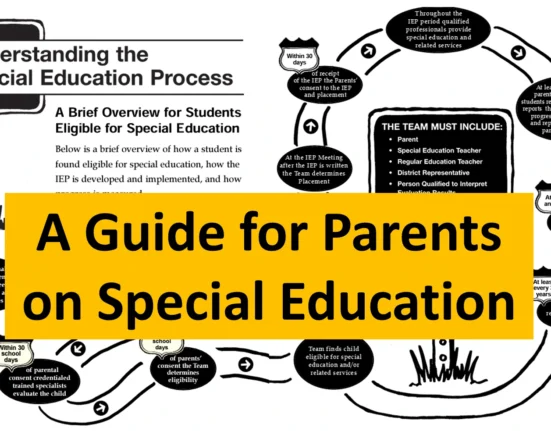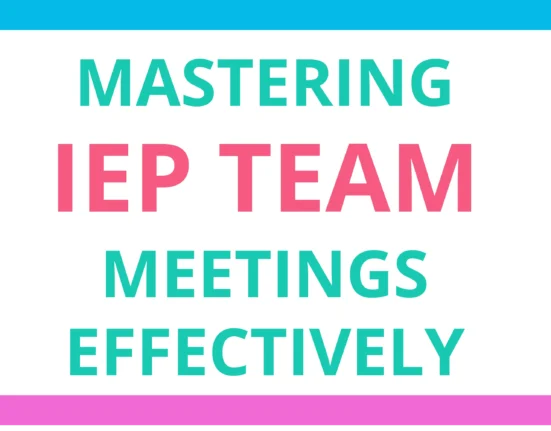Special education is an ever-evolving field that requires continuous learning and adaptation. To help educators stay informed, this article highlights ten recent studies that provide valuable insights and practical strategies for enhancing teaching practices. These studies cover a range of topics, including academic success for children with autism, racial disparities in disability identification, and the implementation of inclusive education.
1. Enhancing Academic Success for Children with Autism
Reference: Keen, D., Webster, A. A., & Ridley, G. (2016).
How well are children with autism spectrum disorder doing academically at school? An overview of the literature. Autism, 20(3), 276-294.
Summary: This study investigates the academic challenges faced by children with Autism Spectrum Disorder (ASD) and suggests targeted interventions to support their learning.
Key Takeaways:
- Children with ASD face significant challenges in communication and social interaction, which can affect their academic success.
- Targeted interventions are crucial for supporting their academic development.
- Adapting the learning environment to meet their specific needs is essential.
2. Addressing Racial Disparities in Disability Identification
Reference: Morgan, P. L., Farkas, G., Hillemeier, M. M., & Maczuga, S. (2017).
Replicated evidence of racial and ethnic disparities in disability identification in U.S. schools. Educational Researcher, 46(6), 305-322.
Summary: This research highlights significant racial and ethnic disparities in disability identification in U.S. schools and the implications for equitable access to special education services.
Key Takeaways:
- Minority students are often under-identified or over-identified for disabilities.
- These disparities can lead to unequal access to special education services.
- There is a need for more equitable policies and practices in disability identification.
3. Best Practices for Implementing Inclusive Education
Reference: Schuelka, M. J. (2018).
Implementing inclusive education. Disability, CBR & Inclusive Development, 29(4), 135-150.
Summary: This study explores effective strategies for integrating students with special needs into mainstream classrooms, emphasizing the importance of inclusion in education.
Key Takeaways:
- Inclusion is a fundamental principle of education for all students.
- Adapting curricula and teaching methods to meet diverse needs is essential.
- Teachers play a critical role in the successful implementation of inclusive education.
4. Leadership’s Role in Creating Inclusive Schools
Reference: McLeskey, J., & Waldron, N. L. (2015).
Effective leadership for creating inclusive schools: Transformational leadership and beyond. Exceptionality, 23(1), 59-73.
Summary: This study examines how transformational leadership can promote a culture of inclusion in schools, making them more welcoming and supportive for all students.
Key Takeaways:
- Transformational leadership is key to creating inclusive school environments.
- Collaboration between teachers, parents, and professionals is essential for fostering inclusion.
- School leaders must model inclusive practices to inspire others.
5. The Importance of Evidence-Based Practices
Reference: Cook, B. G., & Odom, S. L. (2013).
Evidence-based practices and implementation science in special education. Exceptional Children, 79(2), 135-144.
Summary: This article emphasizes the need for evidence-based practices in special education, highlighting how they can improve teaching effectiveness and student outcomes.
Key Takeaways:
- Evidence-based practices are crucial for effective educational interventions.
- Continuous professional development is necessary to stay updated on best practices.
- Implementation science is important for effectively applying these practices.
6. Aligning Writing Practices with Common Core Standards
Reference: Graham, S., Harris, K. R., & Santangelo, T. (2015).
Research-based writing practices and the Common Core: Meta-analysis and meta-synthesis. The Elementary School Journal, 115(4), 498-522.
Summary: This study reviews effective writing practices aligned with Common Core standards, offering strategies for improving writing skills in students with learning disabilities.
Key Takeaways:
- Research-based writing practices are vital for enhancing students’ writing abilities.
- Strategies must be integrated within standardized curricula to meet diverse needs.
- Structured writing and feedback are key components of effective instruction.
7. Utilizing Universal Design for Learning (UDL)
Reference: Elliott, S. N., et al. (2017).
Universal Design for Learning (UDL): Guidelines for accessible assessment. Learning Disabilities Research & Practice, 32(3), 180-189.
Summary: This article provides guidelines for making assessments more accessible to students with special needs through the Universal Design for Learning (UDL) framework.
Key Takeaways:
- UDL promotes the creation of accessible learning environments for all students.
- Customizing assessments to individual needs is crucial for fairness.
- Integrating diverse supports and technologies facilitates learning.
8. The Power of Progress Monitoring and Data-Based Decision Making
Reference: Fuchs, L. S., & Fuchs, D. (2017).
Progress monitoring and data-based decision making in special education. Journal of Special Education, 50(4), 240-249.
Summary: This research underscores the importance of regularly monitoring student progress and using data to inform educational decisions in special education.
Key Takeaways:
- Regular progress monitoring allows for timely adjustments to interventions.
- Data-driven decision-making improves educational outcomes.
- Collaboration among teachers is essential for analyzing data and refining practices.
9. Integrating RTI Frameworks into Special Education
Reference: Jenkins, J. R., et al. (2015).
How special education can work better with response to intervention frameworks. Learning Disabilities Research & Practice, 30(4), 182-193.
Summary: This study explores how the Response to Intervention (RTI) framework can be better integrated into special education to identify and address students’ needs more effectively.
Key Takeaways:
- The RTI framework aids in early identification of students requiring specialized interventions.
- Integrating RTI strategies within general classrooms enhances efficiency.
- Collaboration between teachers and specialists is key to developing personalized intervention plans.
10. Current Trends and Emerging Issues in Learning Disabilities
Reference: Cortiella, C., & Horowitz, S. H. (2014).
The State of Learning Disabilities: Facts, Trends, and Emerging Issues. National Center for Learning Disabilities.
Summary: This report analyzes current trends and emerging issues in the field of learning disabilities, providing insights into the evolving landscape of special education.
Key Takeaways:
- Definitions and diagnostic criteria for learning disabilities are evolving.
- There is an increasing demand for specialized services.
- Raising awareness and providing better resources for parents and educators is critical.
Conclusion:
These ten studies provide essential insights for special education teachers, offering evidence-based practices, strategies for inclusion, and tools for better identifying and supporting students with special needs. By integrating this knowledge into their teaching, educators can enhance their effectiveness and contribute to the academic success of all students. Staying informed about the latest research empowers teachers to be leaders in creating inclusive and equitable educational environments.






